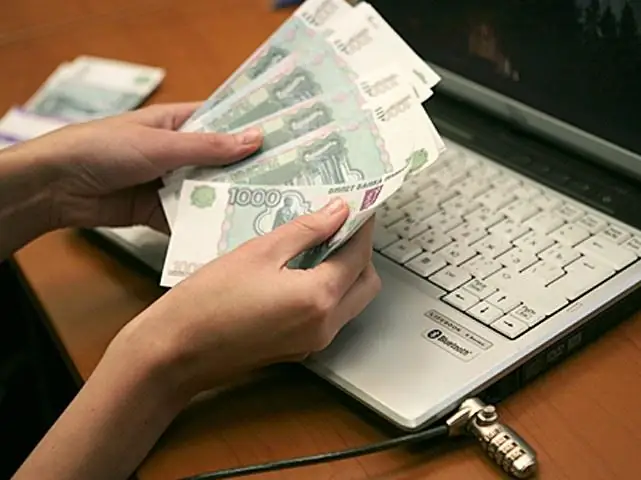- Author Lauren Nevill nevill@internetdaybook.com.
- Public 2023-12-16 18:48.
- Last modified 2025-01-23 15:15.
Recently, social media scammers have become noticeably more active. They come up with more and more sophisticated ways to deceive gullible people, even resort to extortion and blackmail.

"Trends" of scammers
They make a “duplicate” of the account, copying photos and personal data, then knock on the friends of the person who was stolen from them, and ask for a loan or get out personal information. So before responding to such a message in VK, call the person who wrote to you.
… Fraudsters offer a popular product at a very low price, while giving all sorts of guarantees. There were cases when a scan of a passport was sent as proof. But the money is asked to be transferred to the card before receiving the goods. Then, as usual, they disappear.
If they offer easy money, you should also be wary. At first, this offer seems harmless, but then it moves into the "hard" sale phase, where they offer to transfer a small amount to an electronic wallet. An inexperienced person who is not versed in sales technology can take this. So they often lure into financial pyramids and other illegal structures.
… The former offer to teach for a small amount, the latter offer to obtain "secret" information for a fee on how the course of a sporting event will develop. This money will definitely "go down the drain."
Few people understand the methods of their work, and it doesn't matter. You need to know that they are hunting for PD - personal data. Further, something is extorted or blackmailed in a variety of ways.
How to secure your account
First of all, you need to remember that excessive openness on social networks is a direct path to the fact that your page will be paid attention. There is such a concept - oversharing, and it is becoming more and more common. That is, people post unnecessary details about themselves, up to passport data.
So take a look at your pages and check oversharing:
- phone number,
- geotag to home address,
- passport data,
- photo with ID or credit card.
Another way to protect yourself is not to follow links from unknown addresses. If you offer to see a photo or find yourself in a photo, then after clicking you can easily get to the infected page. A comprehensive antivirus that notifies you of such links and fake resources will help you avoid this trick.
Take passwords and email addresses seriously. Do not make the same password on different sites and pages. If an account is hacked on one site, everything will be opened without difficulty on the others. Don't make passwords too simple. Better to make a complex one: with different registers, numbers, underscores. With such a password, it will be very difficult to hack an account. If possible, it is better to bind to the phone and make multi-stage access. Also, experts recommend changing the password at least once every six months.






